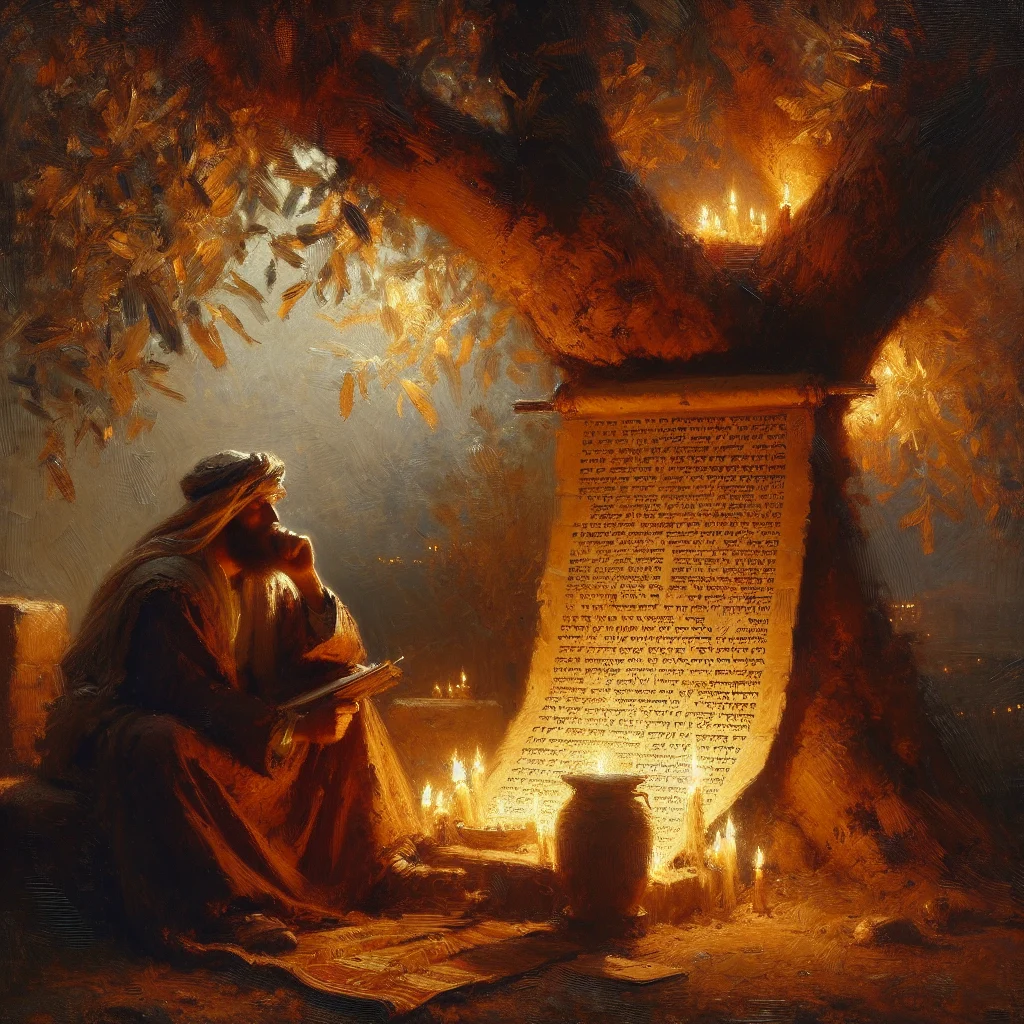What Does Meditate Mean in Hebrew?
If you’ve ever asked yourself, “What does meditate mean in Hebrew?”, you’re likely exploring the rich intersection of mindfulness, spirituality, and biblical tradition. Meditation, a practice often associated with Eastern philosophies, has deep and profound roots in the Hebrew Bible and Jewish customs as well. In Hebrew, the concept of meditation isn’t just about silencing the mind—it’s about active engagement, reflection, and connection to the divine.
To learn how to bring this ancient wisdom into your everyday practice, explore our guide: Everyday Calm: A Beginner’s Guide to Daily Meditation.

The Hebrew Words Behind Meditation
The Root Word: “Hagah”
One of the primary Hebrew words used for “meditate” in the Bible is hagah (הָגָה). This word appears in the Old Testament and literally means “to murmur,” “to ponder,” or “to utter.” Its usage suggests a kind of verbal contemplation, often under one’s breath, indicating deep focus and emotional involvement. For instance, Psalm 1:2 says, “But his delight is in the law of the LORD; and in His law he meditates day and night.” Here, the verb “meditates” translates the Hebrew hagah.
Interestingly, hagah is also used in contexts like a lion growling over its prey (Isaiah 31:4), pointing to a passionate, almost consuming attention that resembles fervent rumination.
“Siach”: Dialogue and Reflection
Another Hebrew word translated as meditate is siach (שִׂיחַ), which means to muse, converse, or even complain aloud. This type of meditation is dialogic—it’s about having an expressive or even confessional conversation with God, oneself, or others. Siach emphasizes verbalized thought, a process that fosters clarity and spiritual alignment.
Both terms contrast with the modern Western notion of meditation as an emptying of the mind. In Hebrew, meditation is more active, thoughtful, and purpose-driven.
Scriptural Context and Deeper Meaning
In biblical times, meditation wasn’t treated as a secular mental exercise. Instead, it was a devotional practice meant to deepen one’s relationship with God. Through meditation, the faithful would constantly keep God’s law in mind and heart. According to many theological studies, meditation was regarded as a way of aligning one’s emotions, thoughts, and actions with divine will.
Meditation in Psalms and Prophets
The Book of Psalms serves as the clearest example of meditative practice in ancient Israel. Psalms 119 features multiple verses (v.15, v.23, v.48) where the psalmist speaks about meditating on God’s statutes. Furthermore, Prophet Jeremiah (in Jeremiah 17:8) indirectly references meditation when he describes one who trusts in God as “a tree planted by water”—implying mindfulness and constant spiritual connection.
This strongly suggests that, to meditate in Hebrew culture, was not just about prayer, but about sustained spiritual immersion.
Modern Interpretations and Jewish Mindfulness
In contemporary Jewish practice, meditation still plays an important role—though it often goes by names like “hitbodedut,” which literally means “self-seclusion.” Rabbi Nachman of Breslov, a Hasidic master, encouraged this form of meditation as a personal heart-to-heart dialogue with God, in nature or solitude.
Jewish mindfulness has found modern expression in movements like the Institute for Jewish Spirituality, where ancient techniques are taught through modern lenses—blending tradition with neuroscience, psychology, and holistic well-being.
The Role of Meditation in Hebrew-Christian Dialogue
Interestingly, understanding what “meditate” means in Hebrew also enhances Christian practice. Since much of the Old Testament forms the basis of Christian theology, interpreting words like hagah and siach deepens one’s comprehension of Bible verses that mention meditation.
For example, in the article Is it OK to Meditate as a Christian?, we explore how Christians can embrace biblical meditation without contradicting their faith. Biblical meditation encourages introspection, memorization of Scripture, and active engagement with God’s word—making it both faith-based and spiritually enriching.
Applying Hebrew Understanding to Your Practice
Now that we know what Hebrew meditation entails, the next step is to apply it in daily life. Here are some simple techniques:
- Chant or hum softly a meaningful word or verse. This aligns with the concept of hagah—it’s a way to emotionally engage with a spiritual concept.
- Journaling or talking aloud as prayer or reflection, inspired by siach.
- Choose a Psalm verse each day and meditate upon it by repeating it and pondering its meaning deeply.
Incorporating these traditional practices can add tremendous depth to your existing meditation routine. Additionally, if you’re exploring hybrid practices such as meditating on the Word of God, understanding the Hebrew roots offers greater clarity and spiritual resonance.

Why This Matters in a Mindfulness Journey
Today, as more people turn towards holistic and spiritually nourishing lifestyles, gaining insight into the Hebrew concept of meditation reveals deep, timeless truths. Whether you’re part of the Spirituality & Inner Work path or exploring Mindfulness & Meditation frameworks, reconnecting with the roots of your practice is profoundly enriching.
Whether your faith background is Christian, Jewish, or spiritual but not religious, bringing Hebrew meditation practices into your life grounds your practice in meaning. It reminds us that meditation is not just a tool for stress relief—but a call to be present, intentional, and spiritually awake.
To help you deepen this journey, consider starting with our practical guide: Manifest Your Dreams: A Practical Guide to the Law of Attraction.

